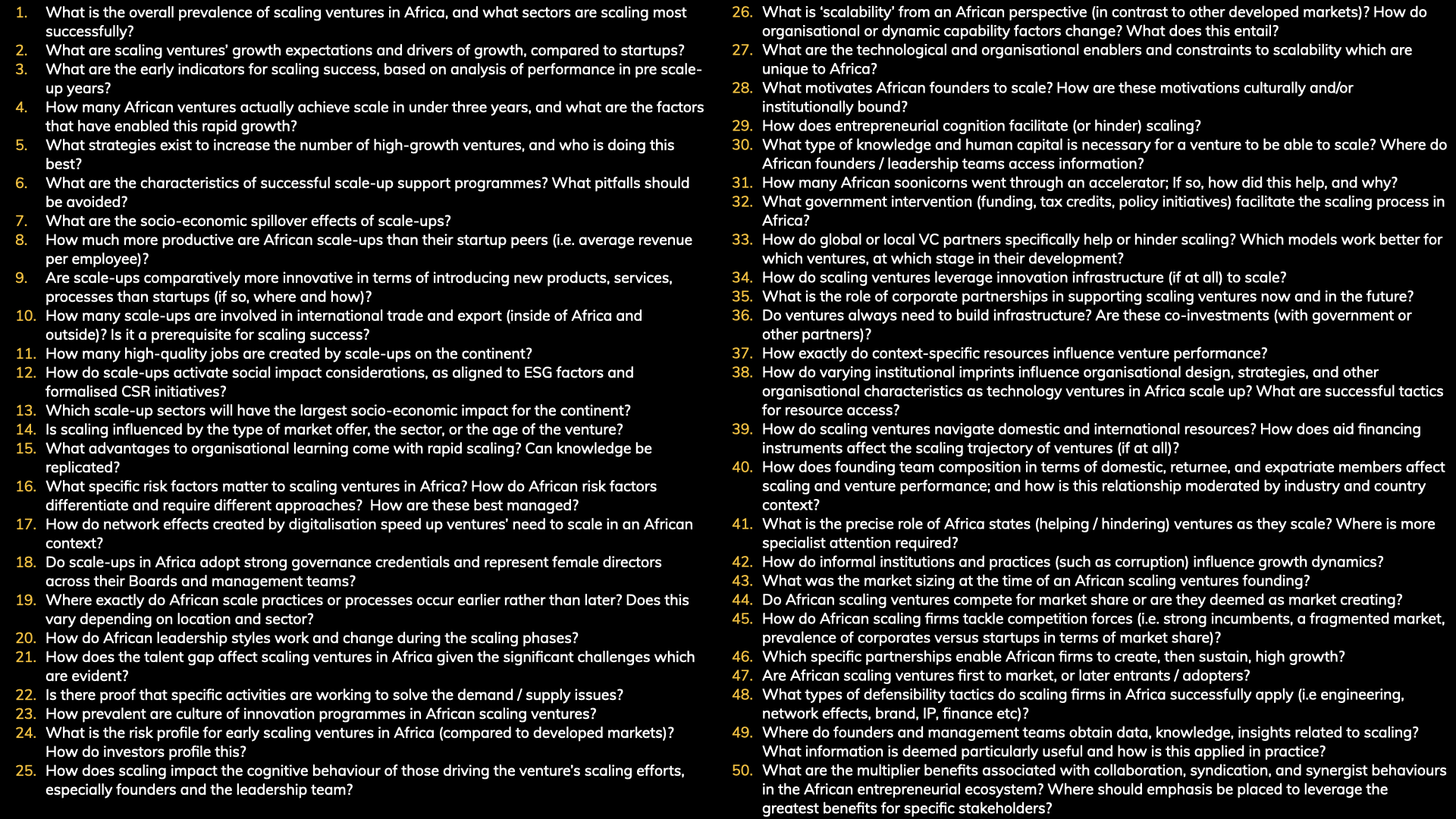
Context Matters. A lot.
“While more and more researchers are studying entrepreneurship in Africa, there has been little attention paid to how African ventures scale once they are founded.”
Professor Tim Weiss, Imperial College, London
Due to highly complex underlying conditions, sub-Saharan African businesses face very different scaling challenges compared to those operating in more developed markets.
Significant investment is entering the African entrepreneurship ecosystem. Funding rounds and deal-flow like never before. Africa’s unicorns and soonicorns are being built. Opportunities abound. Yet, to date, there have been few comprehensive examinations of how African scaling businesses grow and succeed in complex, dynamic, challenging conditions. Currently there are important knowledge gaps regarding critical success factors, processes, and how context specific conditions are assessed; but there should not be.
Against this backdrop, we analysed activity in the ecosystem to demystify and explain the crowded space, to unearth the meaningful signals from the complex noise. We’ve cast a spotlight on the subject of scaling to understand what this means in an African context. Too little is known about the scaling journey on the African continent. Startups lack a cogent framework for transitioning into mature ventures. There are serious knowledge and data gaps which must be addressed.
Our thesis is simple. To understand key ‘scale up ingredients’ which could help startups and scale-ups accrue more knowledge to address and overcome common problems more effectively.
Ventures can improve their prospects of commercial success by understanding the mechanics of effective scaling, and applying and adapting these universal truths to their unique African context.
We believe that African scale-up support and ecosystem interventions can be better designed to kickstart and sustain high-growth businesses. More targeted help - delivered in the right way, at the right time - by various actors across the ecosystem is essential. It’s high time for guesswork predictions to be replaced by evidence-based approaches, more innovative thinking, and a suite of new systems focused interventions for different, improved, out-sized results. We ask, if not now, then when?
African scaling research and data is weak and patchy
To date, sub-Saharan African commercial scaling research analyses have tended to focus on broad macro-contextual conditions, rather than drilling down to more granular ecosystemic, strategic and operational success factors.
“There's no library where you can go and find good solutions to scale. Information is spread out. And it's often very hard to identify a solution, especially when there's not enough aggregated data to look at and compare projects in, say, Congo and South Africa. We don't have datasets to compare like for like. This makes it harder to get to scale.” - interviewee
The existing datasets are incomplete and research activities far from comprehensive, which has resulted in disparate and disjointed insights about which specific factors have enabled scale. Whilst there has been significant academic attention on scaling social enterprises, the field of commercial scaling in Africa is new and under-investigated. This leaves important questions entirely unaddressed (let alone answered).
Figure 3. indicates 50 initial research questions related to scaling ventures in Africa. If these questions cannot sufficiently be answered, it is inevitable that ecosystem interventions and resources will continue to ‘hope for the best’, rather than be guided intentionally towards more strategically successful outcomes.
Greater attention to building the empirical evidence set necessary will enable ecosystem support actors to develop fit-for-purpose models of targeted programmatic support (of the right type, at the right time, in the right way).
In this context, an applied research approach facilitates the integration of different perspectives in order to:
interpret data;
get to root casualties; and
evaluate how systemic interventions might help consistently deliver better outcomes.
Understanding why, and how, high-growth scaling happens in Africa will allow for resources to be better aligned to support these companies appropriately - by segmenting, targeting, and coordinating interventions at multiple levels for positive systemic change to occur.


